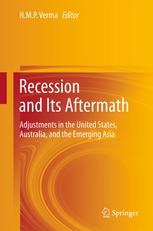

Most ebook files are in PDF format, so you can easily read them using various software such as Foxit Reader or directly on the Google Chrome browser.
Some ebook files are released by publishers in other formats such as .awz, .mobi, .epub, .fb2, etc. You may need to install specific software to read these formats on mobile/PC, such as Calibre.
Please read the tutorial at this link: https://ebookbell.com/faq
We offer FREE conversion to the popular formats you request; however, this may take some time. Therefore, right after payment, please email us, and we will try to provide the service as quickly as possible.
For some exceptional file formats or broken links (if any), please refrain from opening any disputes. Instead, email us first, and we will try to assist within a maximum of 6 hours.
EbookBell Team

4.0
96 reviewsMarket failure at medium intervals is inevitable in a capitalist economy. Such failures may not be seriously seen in the short run because market adjusts demand through hoarding of inventory or import of required goods and services. The market also adjusts demand in the long run through expansion of concerned industrial output and also by the entry of new firms. The crucial variable is price which also adjusts the commodity and the labor market. The problem comes when there are issues of overproduction, over capacity utilization of plants, over liquidation and excess supply of money, change in demand because of change in tastes and habits of consumers, households and the public. All these create knife edge disturbances in the economy. As a consequence they need adjustment through some variables such as employment and growth of population, saving propensity, technology, exhaustion of existing inventory, monetary and fiscal balancing. In this volume an attempt has been made to appraise the working of a market economy where short term disturbances may occur, market efficiency reduces, recessionary cycle emerges and after certain fundamental measures the market recovers. Starting with a brief recent history of the crisis and the recession, discussions in this volume turn to how deliberations in macroeconomics yield implications for specific policies, some of which have been tried and others still to be tested. Further in the volume we propose policies necessary for efficient regulation of the economic system, and give a brief assessment of the extent to which global policy coordination has been mulled in policy circles even if these are not seriously practiced.